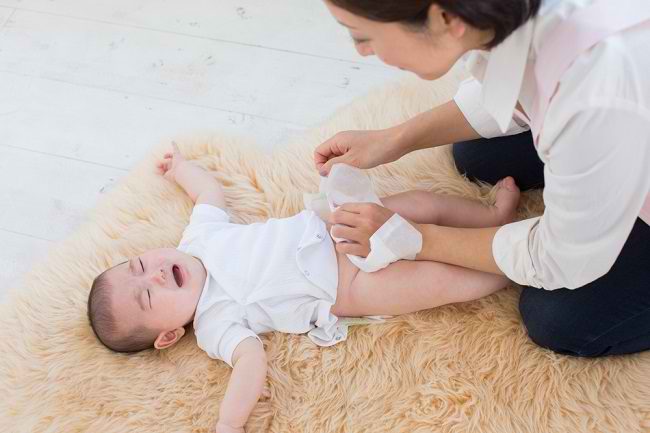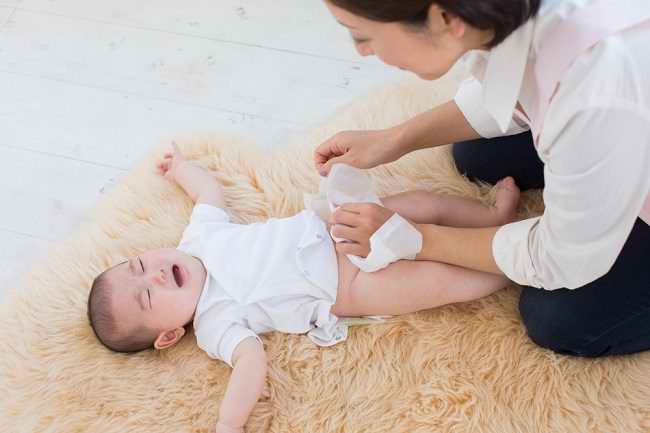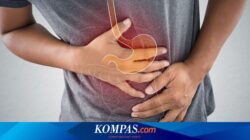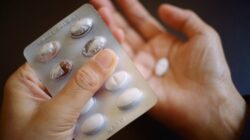Diarrhea is one of the most common health problems in infants. Some cases of diarrhea in infants can actually heal by itself. However, babies are also at risk for dangerous complications, if the diarrhea they experience is not treated quickly and appropriately.
Infant and toddler mortality rates due to diarrhea are still relatively high. Worldwide, around 525,000 infants and toddlers die from diarrhea each year. In Indonesia alone, the percentage of infant mortality due to diarrhea is still quite high, around 25-30%.

Various Causes of Diarrhea in Babies
Diarrhea in babies can be caused by various things, including:
-
Gastroenteritis and intestinal infections due to viruses, bacteria and parasites
- Food poisoning, especially in infants who have consumed solid food
- Too much fruit juice
- Allergies to certain foods or drugs
- Cow’s milk intolerance
Babies who have started consuming solid food and are experiencing diarrhea are advised to avoid oily, high-fiber, high-sugar, and cow’s milk foods. This is because these types of foods and beverages can worsen the symptoms of diarrhea in infants.
Know the Meaning of Texture and Color of Baby Stool
The main signs and symptoms of diarrhea in infants are bowel movements more often with watery stool texture or loose stools. Therefore, you can detect diarrhea in your little one by looking at changes in the texture and color of his stool.
However, even if they don’t have diarrhea, breastfed babies can sometimes produce looser stools. Thus, mothers need to be careful in distinguishing stools in infants with diarrhea and infants consuming breast milk.
Meanwhile, small, hard, round stools can be a sign that your baby is constipated. The following is the meaning of stool color which can be a guide for mothers to detect the health condition of the little one:
- Blackish green or also called meconium is stool that appears when a newborn is born.
- Light brown or yellowish brown is the color of the stools of babies who consume formula milk.
- Green-brown is a common stool color in babies around 5 days old.
- Greenish yellow is the color of the stool of babies who after birth consume breast milk.
- Dark brown is the color of the stool of a baby who has eaten solid food.
The color and texture of the baby’s stool will change with age and the type of food consumed.
Paying attention to the Symptoms and Impact of Diarrhea on Babies
If your little one is under 6 months old and has diarrhea, you should immediately consult a doctor, especially if he shows some of the following signs and symptoms:
- Throws up
- Sluggish
- Black or white stools
- Bloody or purulent defecation
- Fussy and looks in pain
- Fever
- Don’t want to breastfeed and have trouble eating
Diarrhea can cause the baby’s body to lose a lot of fluids and electrolytes, which can lead to dehydration. If treated too late, this condition can endanger the baby’s life.
Therefore, mothers need to be more alert and immediately take their little one to the doctor if he has diarrhea along with the following signs and symptoms of dehydration in infants:
- dry mouth
- Don’t shed tears when you cry
- Urinating less than usual or not urinating at all
- Skin looks drier
- Looks very weak and often sleepy
How to treat and prevent diarrhea in babies
Diarrhea caused by a viral infection can go away on its own in a few days. However, babies still need to get adequate fluid and nutritional intake during diarrhea.
The following are some steps to treat diarrhea in babies that you can do at home:
1. Provide breast milk and electrolyte fluids
Infants under 6 months of age who have diarrhea can be overcome by breastfeeding more often. This is because breast milk contains the nutrients needed to replace fluids and nutrients lost during defecation.
In addition, breast milk also contains antibodies that can help babies fight bacteria or viruses that cause diarrhea. In infants over 6 months of age, breastfeeding may be continued, interspersed with oral rehydration fluids, such as ORS or water tajin, every time he defecates and vomits.
2. Giving supplements zinc
Supplement zinc can be given to treat diarrhea in toddlers. According to WHO and the Indonesian Pediatrician Association (IDAI), infants with acute diarrhea can be given supplements zinc for 10–14 days.
Dosage of supplementation zinc in infants under 6 months is about 10 mg per day, while in toddlers 20 mg per day. To determine the correct dosage and way of giving supplements, you can consult your pediatrician.
3. Provide probiotics
Some research shows that giving probiotics can support the healing process and speed up the recovery of babies with diarrhea. Therefore, you can give your little one supplements or foods that contain probiotics when he has diarrhea.
Preventing is always better than curing. Therefore, mothers need to take steps to prevent diarrhea in babies in the following ways:
- Wash hands before preparing milk and baby food and after changing diapers
- Wash your little one’s hands, especially after playing, touching dirty objects, or after urinating and defecating
- Maintain the cleanliness of the house and the surrounding environment, including toys and other objects that are often touched by the little one
- Exclusive breastfeeding on a regular basis
- Ensure cleanliness and sterility of milk bottles or complementary feeding equipment used
When Does Diarrhea in Babies Need to be Treated by a Doctor?
Diarrhea in infants and children does not always require antibiotics. Giving antibiotics is only intended for cases of diarrhea caused by bacterial infection. Therefore, the use of antibiotics to treat diarrhea in infants needs to be consulted with a pediatrician first.
If the diarrhea experienced by the baby is severe enough to make him lose a lot of fluids or become dehydrated, immediate treatment by a doctor needs to be done immediately.
To treat diarrhea in infants, doctors can give intravenous fluids to replace body fluids lost due to diarrhea as well as treat dehydration in infants.
If your child’s diarrhea does not go away within 2 days or his condition gets worse, immediately take him to the pediatrician so that the right treatment can be done. This is important to prevent dangerous complications of diarrhea in infants, such as dehydration and shock.











